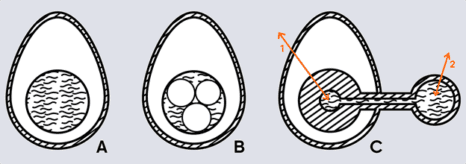A Father’s Support by Katie Doefhoff
- Issue 2: Fathers, Katie Doefhoff
” They are breaking stereotypes by showing emotions as men, providing the strength and support a survivor needs to see.
”
As a clinician working in the fight against sexual violence, I began my career with a skewed expectation of what my work would look like. I assumed that my clients would primarily be female survivors of sexual assault. I bought into the myth that I would not be working with many males, as they are often, but not always, the perpetrators. I feared that as a female I would not be able to connect with any male clients.
Within my first month as a staff therapist, my perceptions were proven very wrong. I began working with childhood survivors of sexual abuse, and parents whose children had been abused. It had never occurred to me that I would be working with entire families, not just the survivors. I doubted whether I could support a parent, let alone a male parent. What I have learned since beginning my work with fathers is that their children are surviving and healing because of their support.
As it stands today, most perpetrators are males, and are typically someone known, or close to, the survivor. The break in trust that occurs during sexual abuse is one of the most traumatic and vulnerable aspects of the hurt. Repairing the trust and restoring power and control is a central focus of healing work for survivors. When survivors have a model for healthy trust in relationships, they are in an environment that promotes healing and growth. Who better to provide an example of trust than a supportive father?
Once a survivor’s trust and body has been violated by a male, a father has the opportunity to provide support and rewrite the survivor’s experience of interaction with males. Sexual abuse is a crime about power and control. When sexual trauma occurs, that power and control is taken away from survivors in the most vulnerable way possible. A father can provide a positive example of unconditional positive regard, support, and validation that helps restore the survivor’s power and control.
In my time working as a therapist at Zacharias Sexual Abuse Center, I have had the privilege of working with several amazing fathers. Their unwavering support and belief provided by these fathers has made a significant difference in the healing work of their children. Each of the fathers I have worked with has provided dedication and commitment to their child’s healing by receiving support for themselves, and by being involved in the services their children are receiving. When sexual trauma occurs, its effects ripple throughout the family. Survivors who see that their fathers not only believe them, but are also doing all that is in their power to support them, have a solid foundation to build on. They can begin to rebuild their worldview, begin to trust again, and learn that not all men are bad.
I have worked with fathers who have been able to show their vulnerability and emotions, and show their children it is okay to experience those emotions. I have been so amazed at these fathers’ abilities to show that strength does not mean showing no emotion. They are modeling for survivors, showing them it is okay to experience a range of emotions, and that being vulnerable does not mean you are not healthy and strong. They are breaking stereotypes by showing emotions as men, providing the strength and support a survivor needs to see.
Every day I have the honor of working with these dedicated men. I am continually amazed by the love and support they provide for their families and for the survivor. They are meeting their children’s needs as best as they can, and in doing so, are continually providing a trusting and healing relationship for the survivor to grow. In working with these fathers, I am glad to have had my expectations and perceptions change, and I hope to continue creating a space that fosters growth and support for fathers who are themselves growing and supporting.


